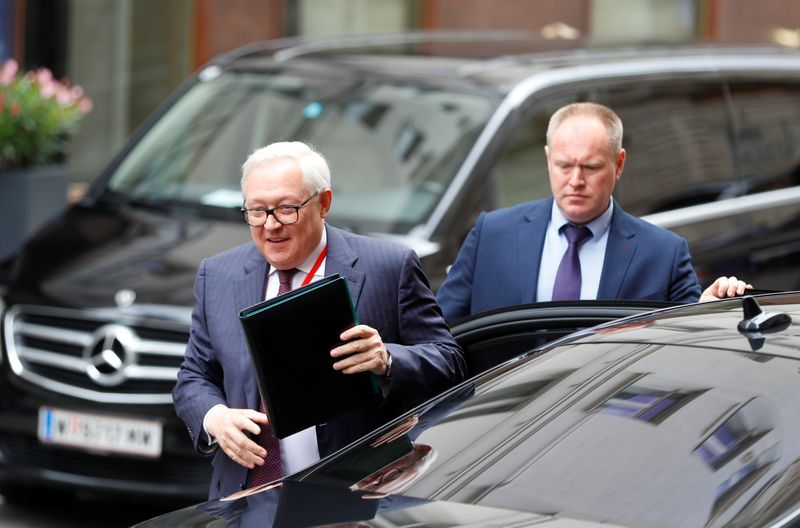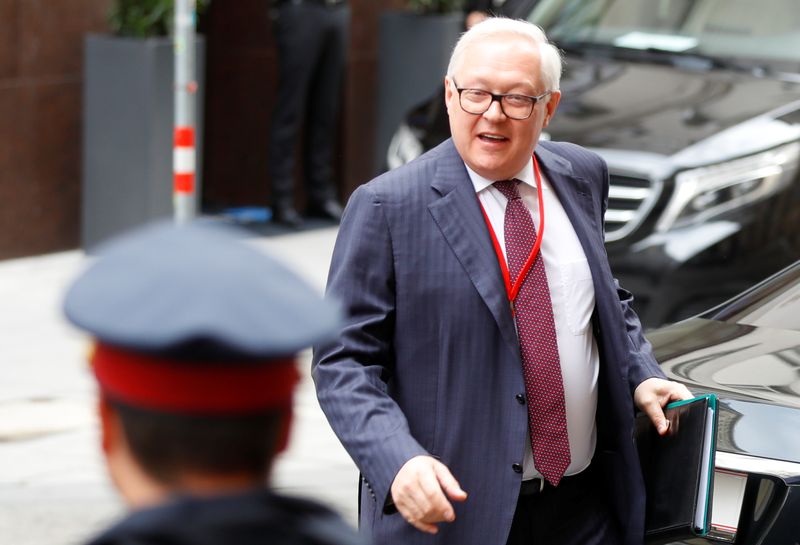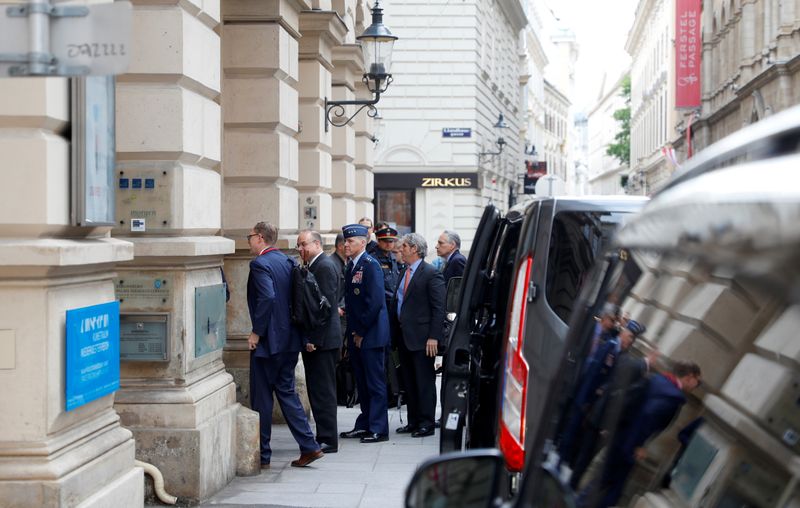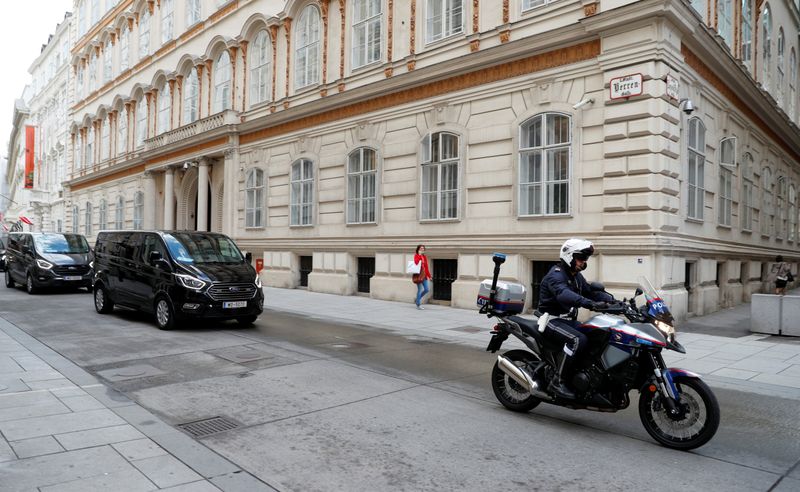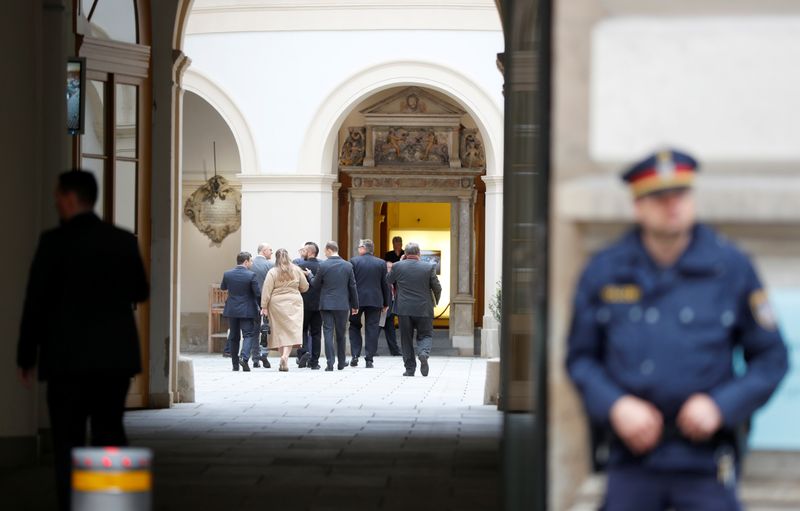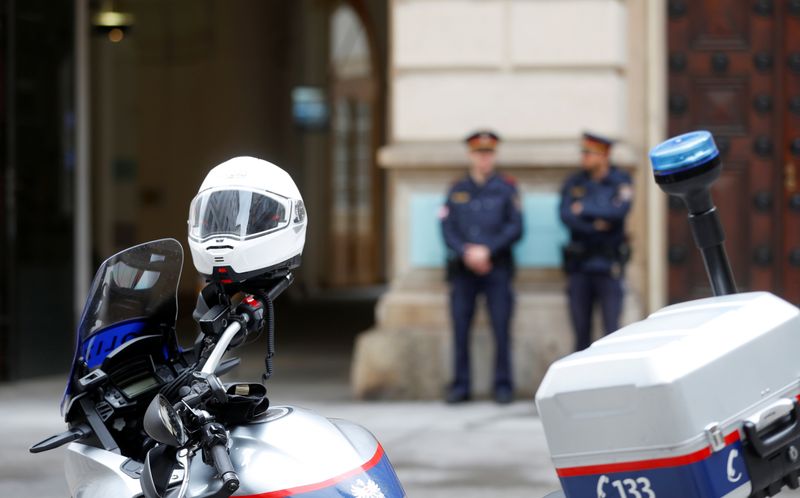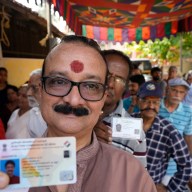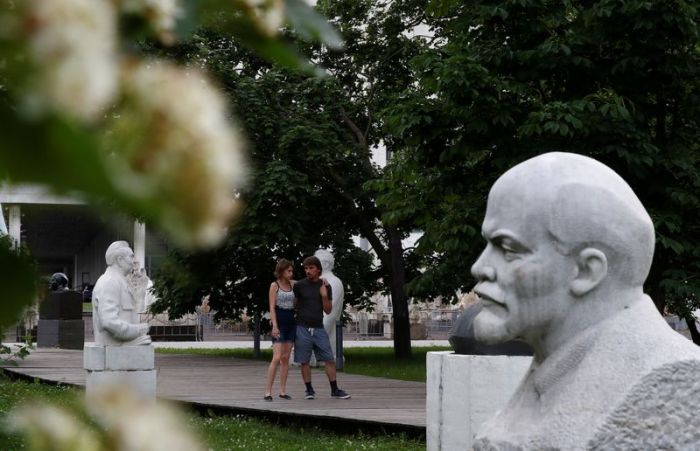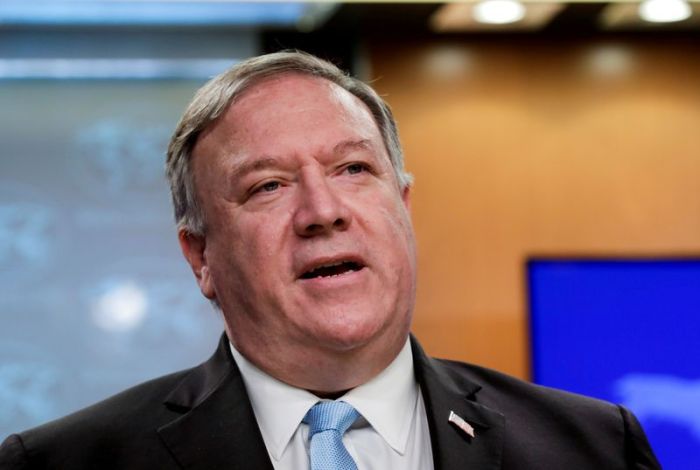VIENNA (Reuters) – The U.S. envoy to nuclear arms control talks with Russia on Monday taunted China for refusing to attend, posting a picture of Chinese flags placed at empty seats around the table, which Beijing dismissed as an act of “performance art.”
U.S. President Donald Trump has sought to include China in talks to replace New START, the flagship nuclear arms treaty between the United States and Russia, which expires in February. China, a nuclear power with an arsenal a fraction the size of those of the Cold War-era superpowers, has repeatedly declined.
“China is a no-show,” U.S. Special Presidential Envoy for Arms Control Marshall Billingslea said on Twitter around the time he arrived for the talks in a palace adjoining Austria’s Foreign Ministry.
“Beijing still hiding behind #GreatWallofSecrecy on its crash nuclear build-up, and so many other things. We will proceed with #Russia, notwithstanding,” he added.
His post (https://twitter.com/USArmsControl/status/1274956212723802113?s=20) included a picture of Chinese flags at empty seats around the negotiating table, with no explanation for how they were placed there when China was never due to attend.
The director general of the arms control department at China’s Foreign Ministry, Fu Cong, responded (https://twitter.com/FuCong17/status/1274976022237044738?s=20): “What an odd scene! Displaying Chinese National Flags on a negotiating table without China’s consent! Good luck on the extension of the New START! Wonder how LOW you can go?”
China’s mission to the United Nations in Vienna posted a screenshot of Billingslea’s picture with the comment “US performance art?”
Russia, for its part, posted pictures (https://twitter.com/mission_rf/status/1275028953300860929) of the talks after they started, with seats filled and no Chinese flags. Austria’s Foreign Ministry, which hosted the talks, declined to comment.
The talks in Vienna are on issues including a possible replacement for the 2010 New Strategic Arms Reduction Treaty (New START), which caps U.S. and Russian deployed strategic nuclear weapons warheads at 1,550 each. That replaced the original Cold War-era START treaty signed in 1991 six months before the Soviet Union collapsed.
China has around 300 warheads in total, roughly the same as France, and many times less than the thousands possessed by Washington and Moscow, according to the Stockholm International Peace Institute.
Trump, who has clashed with China on a range of issues, has repeatedly called for Beijing to join talks on a replacement for New START. China has rejected those calls.
“First round of Vienna talks very positive,” Billingslea said (https://twitter.com/USArmsControl/status/1275169664432082945?s=20) on Twitter hours after he and his Russian interlocutor, Deputy Foreign Minister Sergei Ryabkov, left the venue.
“Detailed discussions on full-range of nuclear topics. Technical working groups launched. Agreement in principle on second round.”
(Reporting by Francois Murphy in Vienna; Editing by Peter Graff and Matthew Lewis)

